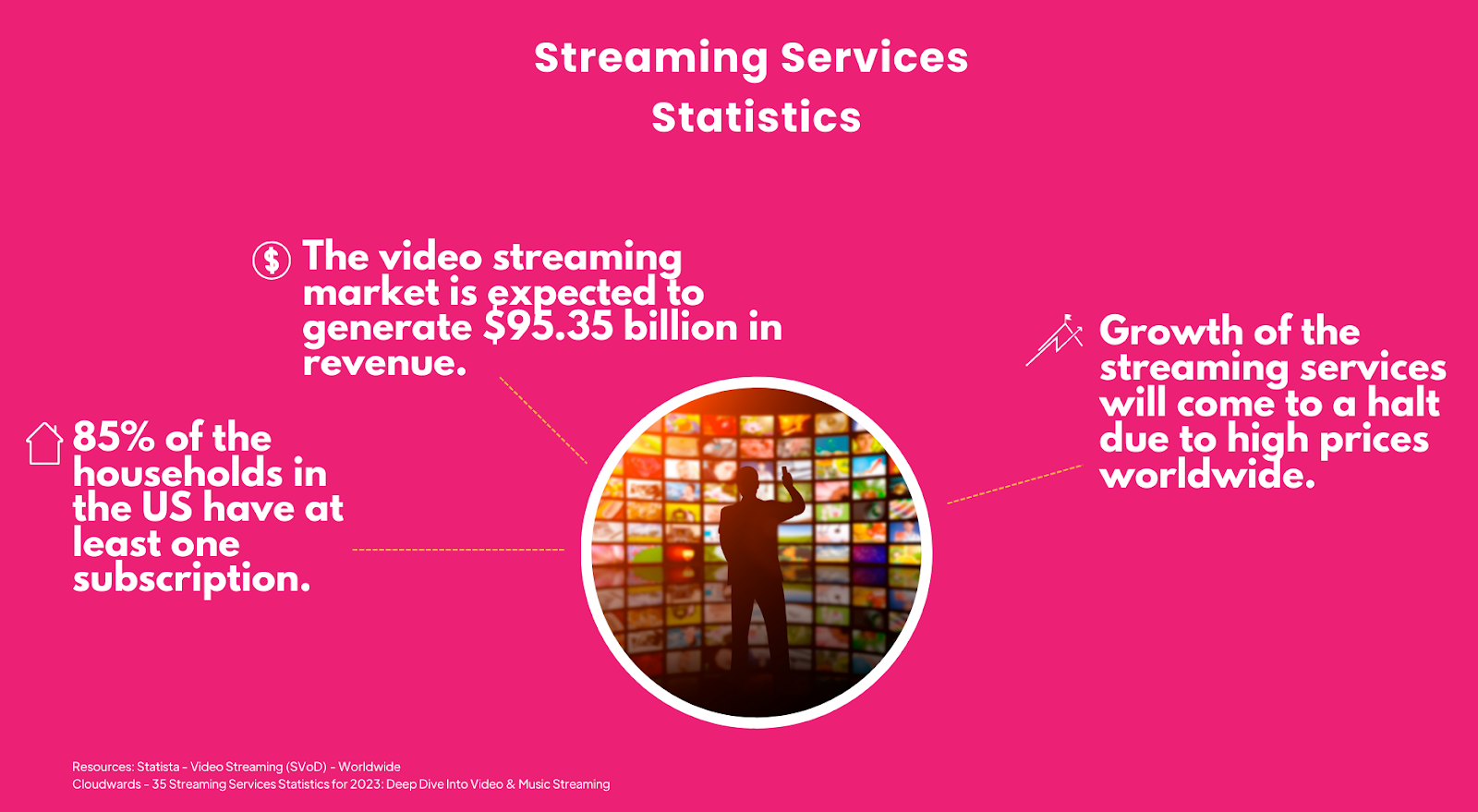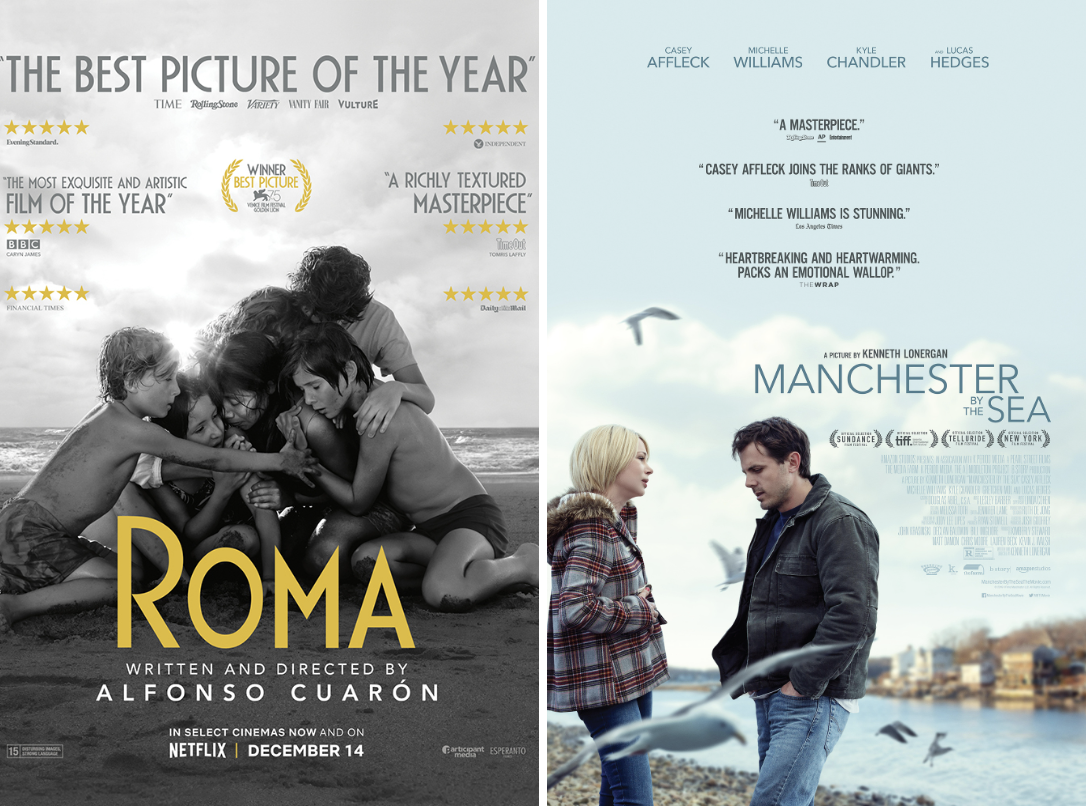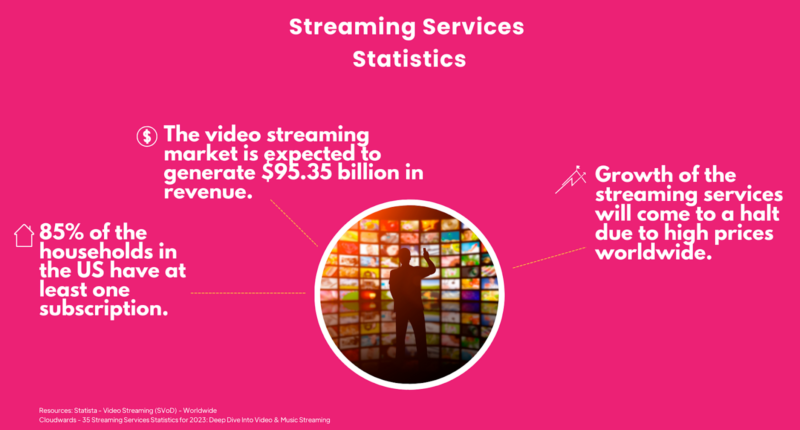The rise of streaming services pops up the same old questions: Are cinemas dying? What will the future of TV be?
The video-streaming entertainment industry has undoubtedly revolutionized the entertainment industry by unbelievably changing the way we consume TV shows and movies. Top streaming platforms such as Netflix, Disney+, Amazon Prime Video, and Hulu have made entertainment more accessible than ever before, resulting in a drastic decline in watching films at the cinema and waiting for shows in front of the TV.
As 85% of American households have at least one subscription to a video streaming service, it is expected to see continuous growth in the streaming industry over the next few years. However, due to the high pricing rates in other parts of the world other than North America and Europe, the anticipated growth will come to a halt, but no decrease is expected. In other words, when even the continuous growth of the industry stops or slows down, the impact of streaming services on the entertainment industry will remain a hot topic for many more years.

Let’s dive into the evolution of TV and cinema regarding the rise of video streaming and analyze why people prefer to watch movies and series from the streaming service apps on their TVs, laptops, or phones.
Why & How Streaming Services Changed the Television Industry?
Streaming services have disrupted the traditional television model by investing heavily in original content production. Netflix, in particular, has paved the way with globally known and well-acclaimed series such as Stranger Things, House of Cards, Emily in Paris, Black Mirror, etc.
With its captivating shows and carefully designed interface causing to binge-watch, Netflix has compelled viewers to “get addicted” to this new TV. And many other streaming platforms have done the same thing over the years, since the 2010s in particular.
As a result, the power of traditional media has shifted to these platforms. We, viewers now have a way much broader range of content to choose from, and all of them are tailored to personal preferences with the help of AI algorithms.
Okay, that’s enough general info. Let’s see the reasons one by one affecting the future of TV:
Personalization
We all see that streaming platforms have totally changed the game by giving us exactly what we want to watch. No more being stuck with whatever is on at a specific time. Now, we get personalized recommendations based on our own viewing habits.
So it’s like having a TV buddy who knows us better than we know ourselves, of course, when we don’t share our Netflix account with family or friends. ?
Love is sharing a password.
— Netflix (@netflix) March 10, 2017
Speaking of Netflix, if you want to learn more about this streaming giant, check out our blog post about Netflix’s digital marketing strategy. In that blog post, we focused on how it managed to gain such success.
Global Reach and Diversity
Streaming services have utterly blown the doors off when it comes to global reach and diverse content. They’ve gone beyond borders, bringing us amazing shows from all around the world.
We’re talking about world-famous series like La Casa de Papel from Spain, the mind-bending Dark from Germany, and the super gripping Narcos from Colombia. These shows have become huge hits, not just in their home countries but across the globe.
And with streaming platforms, we’re now exposed to a whole new world of storytelling and able to explore various cultures.
Breaking the Traditional Broadcasting Model
Do you remember the days when you had to rush home or quit what you were doing to catch your favorite show at a specific time? Well, those days seem a bit far away.
Now we have the freedom to watch our favorite shows at our own convenience. We can pause, resume, rewatch episodes as desired, and even binge-watch entire seasons in one glorious sitting, giving us full control over the viewing experience.
Embracing Niche and Diverse Content
Streaming services have embraced niche and diverse content that may not have found a place on traditional networks. They’ve raised the flag for them and given a voice to stories that often go untold. So, video streaming platforms have become hotspots for innovative and unconventional storytelling, breaking free from the cookie-cutter formulas of mainstream TV. They’ve created a space where underrepresented communities and unique perspectives can shine. For instance, Sex Education, a Netflix original, is considered to be one of the most queerest teen shows ever.
Are Cinemas Dying?
The theater has consistently faced predictions of its death, but today it stays powerful and is regenerating through stand-up shows. The same story can or probably will be valid for the film industry, but cinemas? We don’t think so.
Distribution and Accessibility
Streaming services have revolutionized film distribution by offering a direct-to-consumer model. Gone are the days when filmmakers had to rely solely on mainstream releases to showcase their work.
Video streaming platforms became the major players in acquiring and distributing independent films, giving smaller and niche productions a chance to shine. And even the smallest streaming services, the ones merely focusing on independent cinema, have managed to create brand awareness to some extent. For example, 24% of the UK population knows MUBI.

In short, filmmakers now have the flexibility to truly express themselves without the constraints imposed by mainstream expectations, as long as the streaming platforms don’t act like TV giants.
Such artistic freedom leads to the creation of remarkable films that resonate with audiences on a deeper level. We’ve seen this with Netflix’s Roma and Amazon Studios’ Manchester by the Sea, which earned critical acclaim and Academy Awards.

Data-Driven Decision Making
Streaming services have mastered the art of data analytics to understand what viewers want. They focus on making informed decisions based on consumer behavior and preferences. Therefore, they can curate content that resonates with the audience and keep them coming back for more and more. This is not only a win for the video streaming platforms, but it is also extremely beneficial for filmmakers.
Wrapping Up
In the simplest terms, the impact of streaming services on the entertainment industry has been revolutionary.
Netflix, Disney+, Amazon Prime Video, Hulu, and other streaming platforms have fundamentally changed the way we consume content. Actually, they even changed the name of watching films and series into “consuming content”, which can be another topic to discuss, obviously. They have literally disrupted traditional models, providing viewers with more choice, flexibility, and personalization.
With a surge in original content and support for independent filmmakers, these services have diversified the entertainment landscape. As streaming platforms continue to evolve and innovate, the future of the industry looks incredibly promising, with tons of exciting and engaging content available for audiences worldwide.
Are you looking for an opportunity to make a name for yourself in the industry? Here’s what you need to boost your brand: our hand-picked list of top entertainment marketing agencies.










